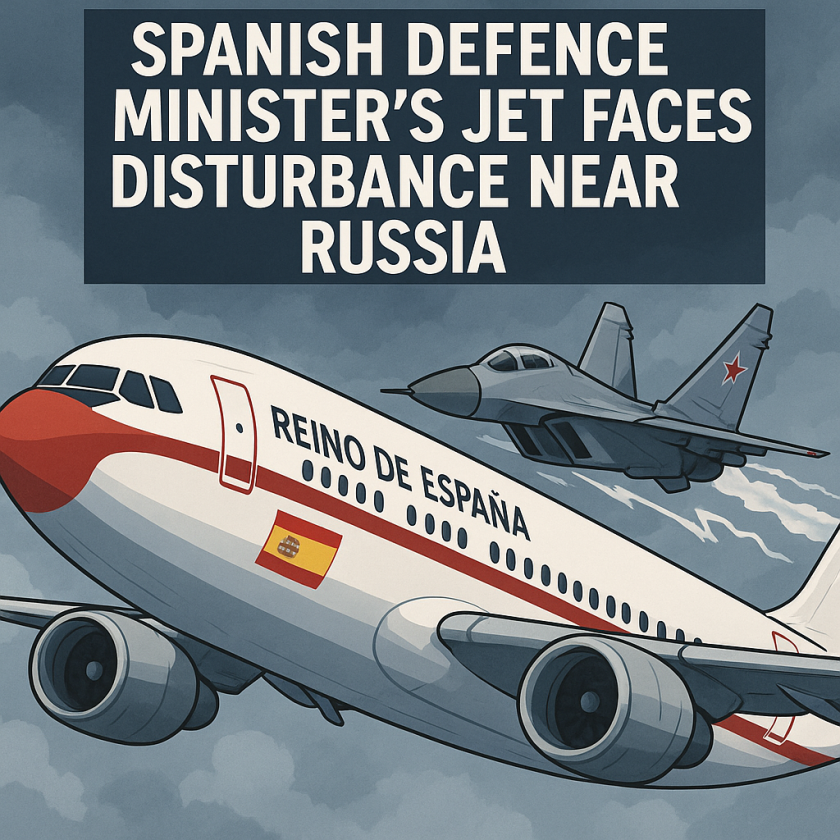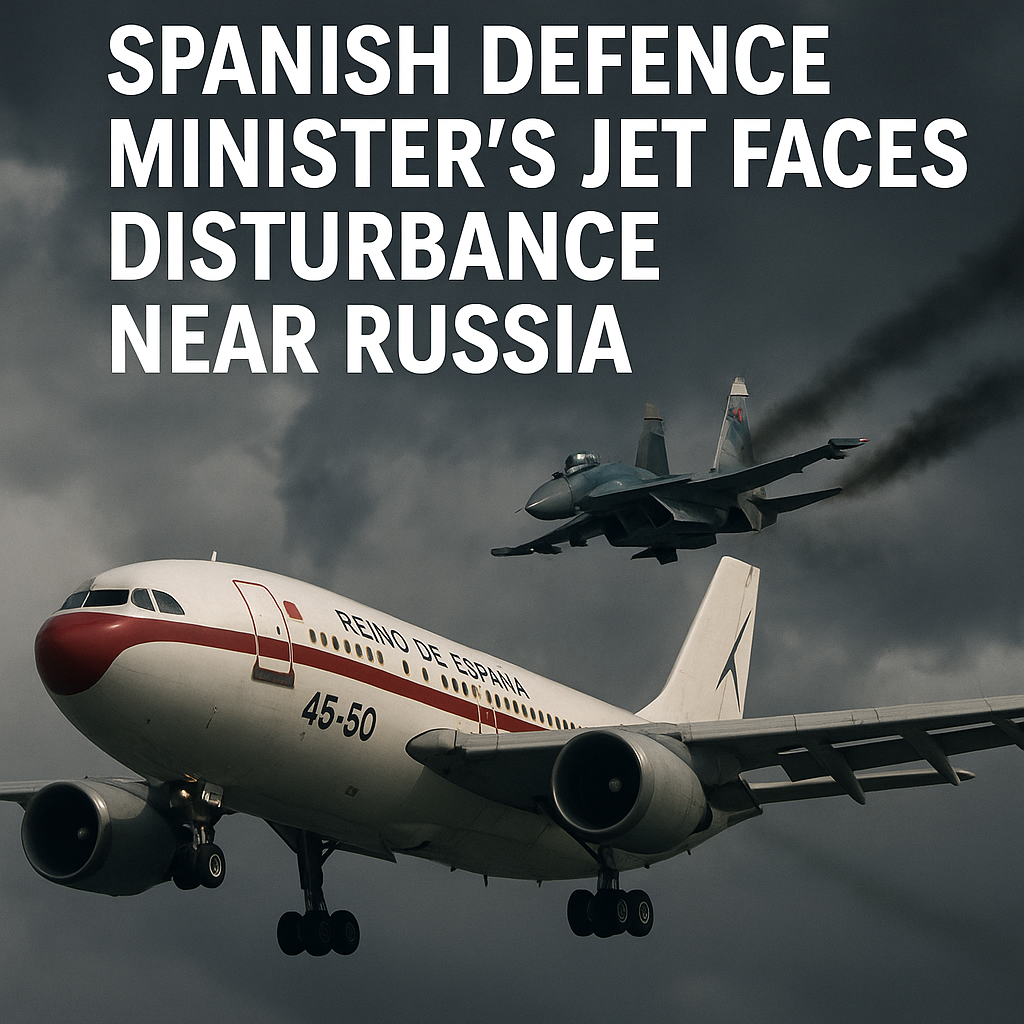Spanish Defence Minister’s Jet Faces Disturbance Near Russia
Spanish Defence Minister’s Jet Faces Disturbance Near Russia
The recent incident involving the Spanish Defence Minister’s jet suffering from GPS disturbances near a Russian enclave has raised significant concerns over airspace safety and geopolitical tensions. This occurrence not only highlights technical vulnerabilities but also reflects the intricate web of international relations and military communications.
Technical Disturbances: A Closer Look

On a routine mission, the Spanish Defence Minister’s aircraft encountered GPS disruptions, which is particularly alarming given the jet’s proximity to Kaliningrad, a Russian exclave nestled between Poland and Lithuania. Reports indicate that the disturbances affected the aircraft’s navigation systems, prompting questions about potential electronic warfare tactics or unintentional technical interference.
Such disturbances aren’t new in the world of aviation, especially near politically sensitive regions. Air traffic is increasingly complicated by military maneuvers, territorial disputes, and the rising use of electronic warfare capabilities. According to Al Jazeera, this incident could reflect broader concerns regarding the integrity of navigation systems in contested airspaces. Experts point out that similar incidents have been documented involving various nations, particularly in high-stakes areas like Eastern Europe.
The Geopolitical Context
The backdrop of this incident is deeply layered within the geopolitical tensions between NATO nations and Russia. The ongoing conflict in Ukraine has amplified the scrutiny of military actions in Eastern Europe. As NATO troops position themselves for a significant military presence in the region, any disturbances in navigational systems could be interpreted as a precursor to more aggressive tactics.
RT reported similar cases where both NATO and Russian military jets have experienced electronic disturbances in close proximity to one another. Such incidents raise an essential question: Are these disruptions tactical military maneuvers designed to assert dominance, or are they simply a result of outdated technology in sensitive areas?
While some analysts argue that this makes for a precarious environment, others suggest that it reveals the need for better diplomatic engagement and technological advancements on both sides. Moreover, it underscores the necessity for clear communication channels to avoid potential misinterpretations that could escalate into larger conflicts.
Balancing Perspectives on Air Safety
While reports from outlets like Sky News emphasize the risk these disturbances pose to air safety and national security, contrasting viewpoints suggest that this incident illustrates the complexities of modern warfare and international relations. Some military analysts argue that current air navigation systems are becoming increasingly susceptible to interference, making it imperative for nations to invest in resilient technologies.
Conversely, there are voices that contend these incidents are more about signaling than substantive threats. They argue that electronic disturbances may serve as tactics to demonstrate technological prowess without crossing thresholds that could lead to military confrontation.
Ultimately, it is crucial for nations to find common ground and develop frameworks that enhance mutual trust. The digital battleground necessitates collaboration between military and civil air authorities to ensure that safety protocols are prioritized, especially in tension-riddled zones.
What Lies Ahead?
The future of air navigation in contested regions like Kaliningrad remains uncertain. The recent disturbance faced by the Spanish Defence Minister’s jet poses critical questions about the implications of electronic warfare and highlights the need for continued vigilance and preparedness.
As tensions fluctuate, ongoing monitoring and improved technologies may become essential to mitigate risks associated with air travel near contentious borders. Ensuring that incidents like this do not escalate into larger geopolitical crises is paramount.
In conclusion, while the GPS disturbances experienced by the Spanish Defence Minister’s jet highlight various technical and geopolitical complexities, they also call for a concerted effort from all involved parties to prioritize air safety, enhance technology, and invest in diplomatic dialogue. By understanding these multi-layered dynamics, nations can better navigate the challenges posed by modern military confrontations and safeguard international airspace for civilian and military aircraft alike.




































